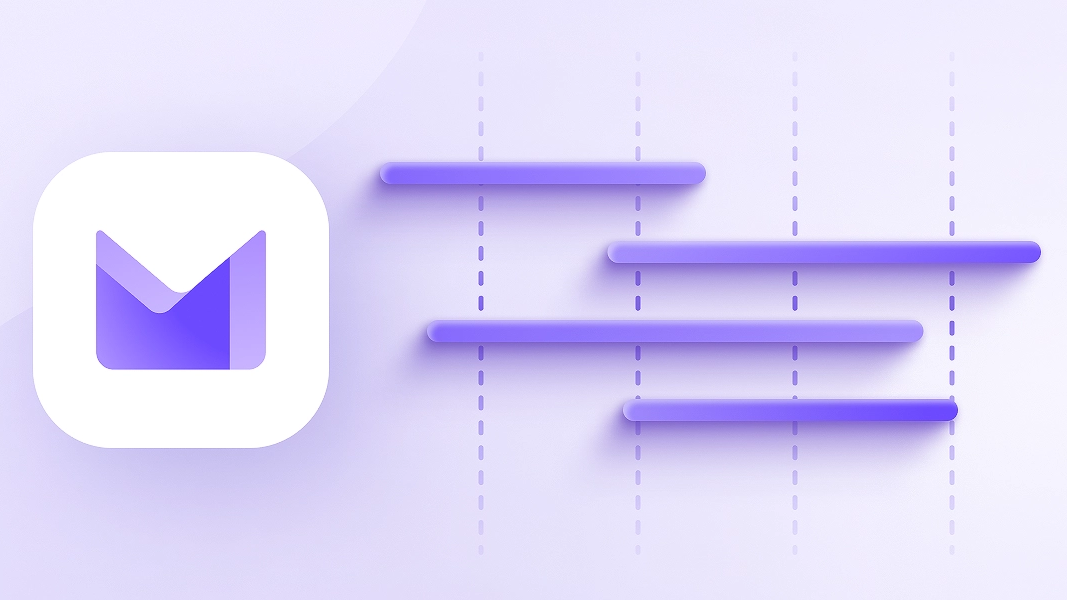iPhone users can say goodbye to email tracking with new Proton Mail update
50% of emails you receive likely contain web trackers

Sign up for breaking news, reviews, opinion, top tech deals, and more.
You are now subscribed
Your newsletter sign-up was successful
More than 160 billion emails sent every day contain invisible trackers monitoring receivers' online activities.
This is the latest worrying data gathered by one of the best VPN providers, Proton VPN. This means that roughly five of every ten emails you receive might be spying on you.
Luckily, everyone using an iPhone or iPad can now escape email tracking by default following the latest update of secure email service Proton Mail iOS apps.
Not only can Proton Mail prevent these intrusive graphics from loading on a device, but it also hides users' IP location and data around emails' opening times.
Email tracking is a form of online surveillance, generally used by marketers. It heavily relies on these invisible images to build a profile on receivers without their consent. What's worse, these web trackers can even manage to collect sensitive data even when using an encrypted email service.
As mobile security is increasingly relevant nowadays, the Swiss-based provider decided to extend the tracking protection from its desktop app to iOS. A new version of the Android app including this feature is currently in the pipeline, too.
Email tracking protection is now available on the Proton Mail iOS app too!Learn more here: https://t.co/rG7WabO5GK https://t.co/I7tWtpCMBw pic.twitter.com/IRmI0g0wlLDecember 19, 2022
A safer and trackers-free email experience
Regarding email tracking, Proton's Founder and CEO Andy Yen said: "This type of surveillance is unacceptable, especially at the scale it is currently happening on, and users are largely unaware that this is happening."
Sign up to the TechRadar Pro newsletter to get all the top news, opinion, features and guidance your business needs to succeed!
"It’s essentially like having an eye hovering over your shoulder, making a note of every time you open and read an email, logging the device you are using, your internet service provider and even your location."
Proton's tracking protection loads the image remotely on one of its servers to protect the users' privacy. Images are then cached on these servers, allowing you to reopen the email privately, as you won't need to load the tracking graphic again.
As the provider automatically opens the email as soon as it is received via its secure network, marketers will also be prevented from tracking down other sensitive data such as users' real IP addresses, email timestamps, operating system, type of device or browser used.
Proton assures that it cannot in any ways read users' emails, as these are protected by strict end-to-end and zero-access encryption.
"At Proton, our mission has always been to build a better internet where privacy is the default,” said Yen.
"That’s why in addition to providing end-to-end encryption for emails, we are also rolling out our unique email tracker protection capability."
Proton's tracking protection is also simple to use.
For starters, it automatically runs in the background, so there is no need to play around with settings. All you need is to make sure your Proton Mail app is up-to-date.
Every time you open an email containing one of these web trackers, you'll get a notification. You can then simply tap the shield icon appearing on the top right of the infected email to view what was blocked.
Firstly launched across its web apps in January last year, it's now the first time users can enjoy the feature on iPhone and iPad.
Some improvements have just been rolled, too. For instance, you're now able to customize how to view these remote images for each app.
Proton saw a 46% increase in blocked trackers since the enhanced version of its tracking protection was first introduced.
Soon, those using Android devices will also be able to benefit from a safer and trackers-free email experience.


Chiara is a multimedia journalist committed to covering stories to help promote the rights and denounce the abuses of the digital side of life – wherever cybersecurity, markets, and politics tangle up. She believes an open, uncensored, and private internet is a basic human need and wants to use her knowledge of VPNs to help readers take back control. She writes news, interviews, and analysis on data privacy, online censorship, digital rights, tech policies, and security software, with a special focus on VPNs, for TechRadar and TechRadar Pro. Got a story, tip-off, or something tech-interesting to say? Reach out to chiara.castro@futurenet.com